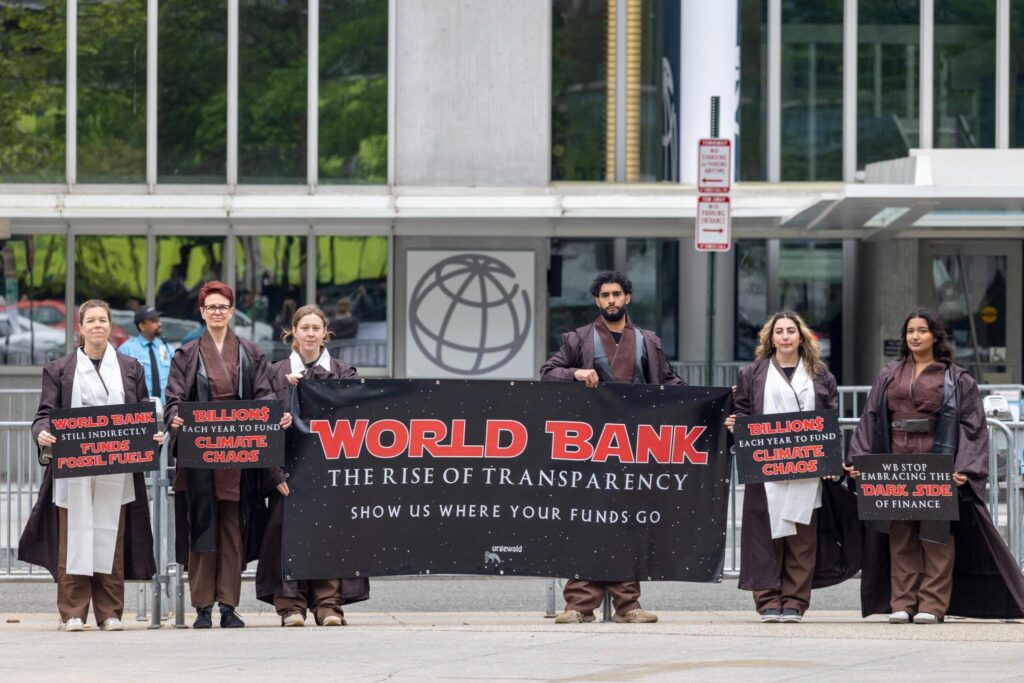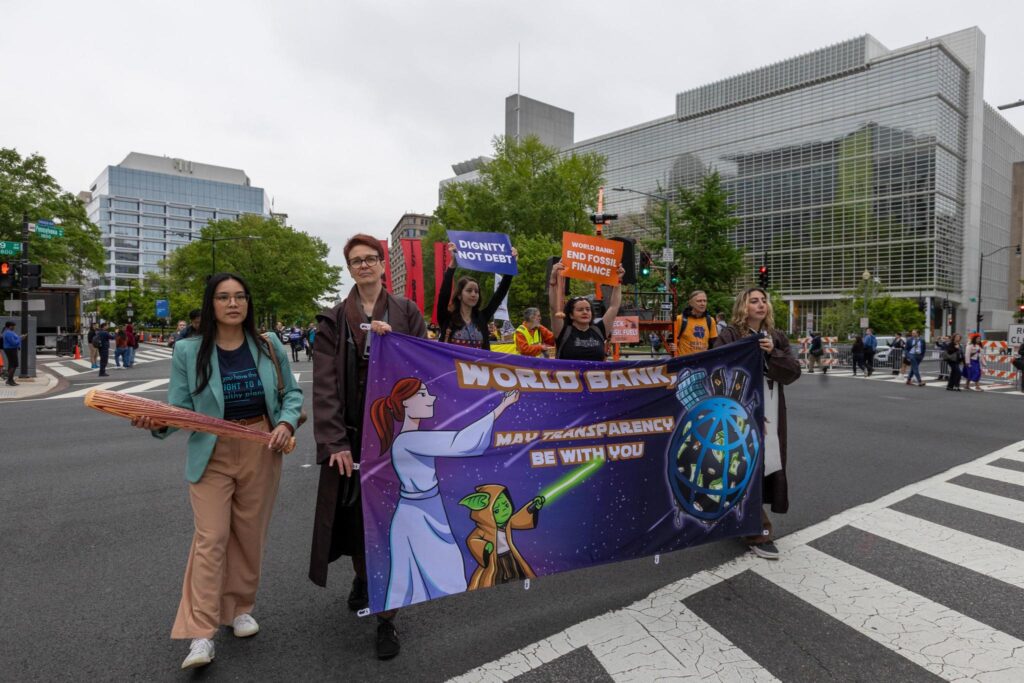
“Transparency” and “Accountability” were our top topics at the World Bank Spring Meetings 2024 in Washington, D.C. To creatively emphasize this, we chose a suitable motif: the Star Wars saga and the demand for “Forceful” transparency: “May Transparency Be with You!”
We criticize the fact that the World Bank’s commitments to stop financial support for fossil fuels do not apply to trade finance. We estimate that in the fiscal year 2022 alone, approximately $3.7 billion of IFC trade finance may have gone to the oil and gas sector. We fear that this trend is on the rise.

Our publication made political waves in recent months. The World Bank’s Supervisory Board requested a “technical briefing” from the World Bank’s management. This took place in March 2024 and was anything but satisfactory. During the spring meetings, we received tailwind from the letter from Senators Markey, Heinrich and Whitehouse to World Bank President Ajay Banga. The three senators called on him to take action for greater transparency and explicitly referred to our study.
The US calls for accountability
Even more high-profile support came from US Treasury Secretary Janet Yellen. In her statement on April 19, she emphasized thataccountability and transparency must be fully integrated into the projects of multilateral banks. The World Bank must have strong, independent accountability mechanisms and be able to effectively investigate allegations of project-related harm. This is a huge boost for our campaigns and a direct result of our joint work with the network on complaints mechanisms. Secretary Yellen’s statement is also a resounding slap in the face for the International Finance Corporation, IFC, the private sector arm of the World Bank. World Bank President Ajay Banga has pinned great hopes on this organization for the restructuring of the World Bank. We do not share these hopes as long as IFC management is unable to respond to damages and human rights violations with adequate compensation.
The bank must improve before it can grow
The needs of the people must come first for the World Bank. The bank’s new motto, “Ending poverty on a livable planet,” admirably describes this goal. But what is actually happening? The purported ultimate goal is a better bank, but the World Bank seems much more focused on getting bigger. Donor countries have pledged $11 billion, so the leverage to $70 billion can be achieved. Nevertheless, this is unlikely to be enough to cushion the consequences of climate damage or to overcome countries’ debt. In this context, Germany’s contribution of 305 million euros for hybrid capital is shamefully low.
Even more concerning is that reliance is being placed on the private sector, while social and environmental safeguards are being removed as barriers. Many experiences show that, especially in the case of large infrastructure projects (e.g. Tatra Mundra, India), banks and companies have little regard for the land rights of the local population, unleash climate damage and communicate over the heads of the people.
It is right to reduce bureaucratic hurdles, simplify and harmonize programs, and, in response to German pressure, set different incentives such as the protection of global public goods for employees. But as long as IFC management turns a deaf ear to complaints about ruinous projects for people (e.g. Bridge Academies) or continues to provide indirect financing for coal, oil and gas, we will criticize the World Bank and publicly shame it.